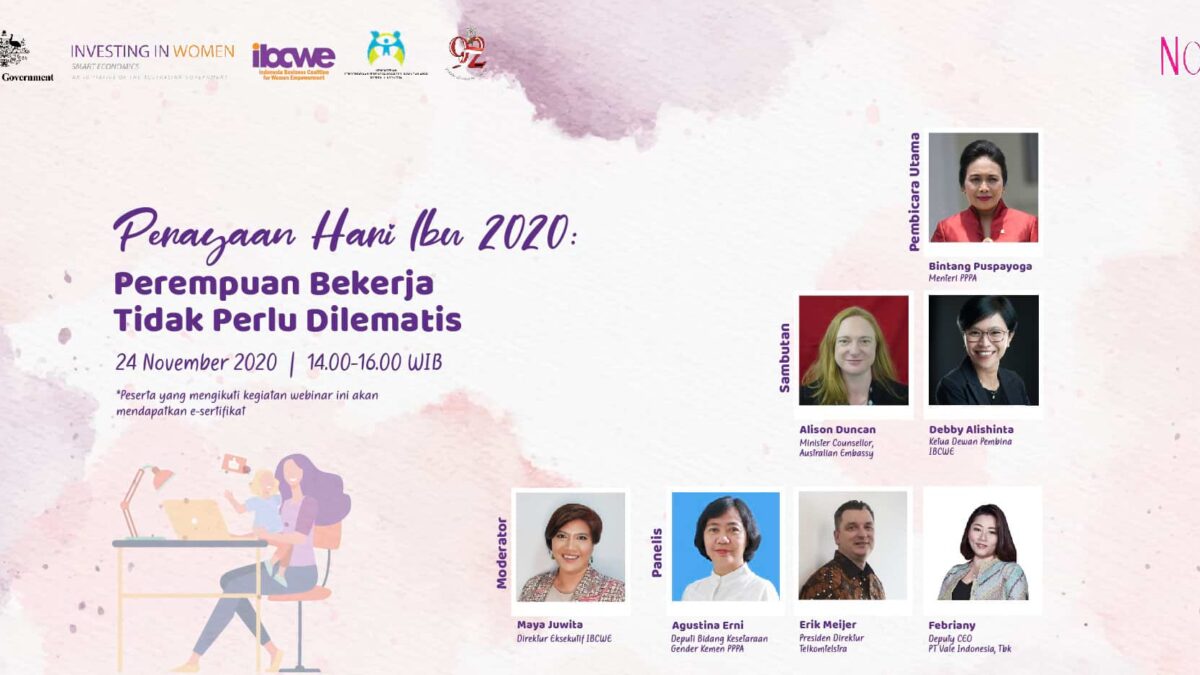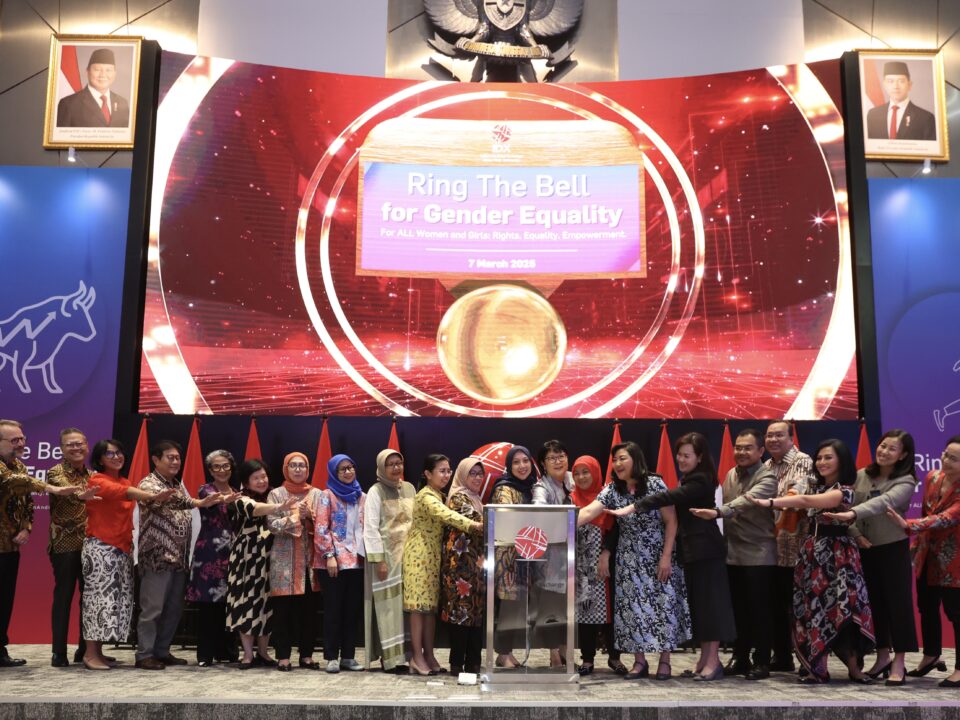
Gender Neutral Parenting Encourages Children to Explore All the Interests, Careers, and Hobbies That They Want.
December 24, 2023
Providing Sufficient Space for Women is Not Only a Gender issue but also addresses business issues
December 24, 2023Many Indonesian people still think conservatively. Taking care of the household and children is the main role of women. Women are always associated with domestic obligations or duties, even though there is no prohibition for women to work and pursue careers.
Statistics Indonesia data in February 2020 shows that female workforce participation has decrease from 55,6 percent to 54,6 percent. The number is inversely proportional to male workforce participation with an increase of 82 percent to 83 percent.
The data shows that women still have many challenges in the workforce, one of which is gender equality. That includes the fulfilment of rights, opportunities, and fair treatment by their company, and having the freedom to self-development without being constrained by stereotype or gender bias.
Remuneration gaps, inequality of opportunities between male and female workers in professional career development, even sexual harassment and violence are still issues. Moreover, the women double burden inhibiting them from gaining economic opportunities. Even more concerning, these barriers come not only from the company, but also from the female employees themselves who feel dilemma as a result of being affected by the prevailing gender norms in society.
A company survey by International Labour Organization (ILO) to 300 to 400 companies in 2018 showed that two-thirds of the companies that implementing gender diversity initiatives have a positive business impact.
Then, a report by U.S.-based management consulting firm McKinsey & Company, titled Women Matter: Time to Accelerate, even mentioned that women’s labour force contributions or participation would significantly impact economic growth in a positive direction. McKinsey said the higher the contribution of the female workforce, the higher the economic growth.
The McKinsey Global Institute (MGI) in its 2015 report said that if men and women participated equally in the workforce, it could boost annual global GDP to 28 trillion U.S. dollars by 2025. Furthermore, MGI in its 2018 report mentioned that if gender equality in the workforce in the Asia Pacific region increased, then about 4.5 trillion U.S. dollars could be added to each of the region’s countries by 2025.
One way to maintain the large number of female talents in the workplace, is to adjust some policies by both the government and the company for female workers.
Indonesia Business Coalition for Women Empowerment (IBCWE) has attracted 21 private companies as members to support gender equality in the workplace through a variety of tools to implement in the company. One of its tools is Gender Equality, Assessment, Result strategy or GEARS which helps companies to measure the status of gender equality in it. Some of the areas of focus include wage equality, gender composition, and employee recruitment.
“We convey the benefits that can be obtained by companies if they support gender equality in the workplace, especially by providing opportunities for women workers to continue working. Various studies have shown that gender diversity at the board of directors has a significant effect on the value of the company, ”said Zelda Lupsita, IBCWE Project Manager.
Zelda took an example from the results of a study from the Peterson Institute for International Economics in 2016, where a 30 percent increase in women’s representation on the board of directors and C-Level equals a 15 percent increase in net income.
“This is because diversity provides a richer point of view, so that the decisions made are better. Another advantage is related to a wider talent pool as well as the cost of new recruitment which can be reduced if the company supports women to keep working,” she explained.
One of the tools developed by IBCWE is Gender Equality, Assessment, Result Strategy or GEARS which helps companies to measure the status of gender equality in it. Some of the areas that are the focus are, among others, equal pay, gender composition, and the recruitment process for employees. The GEARS was developed by IBCWE together with sister organizations in three other Southeast Asian countries namely the Philippines, Vietnam and Myanmar and Investing in Women to portray the state of gender equality in a company.
“By conducting this assessment, companies will receive information regarding the development of an equality strategy in the workplace, what things are already good and can be continued, and what things need to be improved again,” she said.
To discuss women’s problems and their dilemmas, the Ministry of Women’s Empowerment and Child Protection (KPPPA) is working with IBCWE in a 2020 Mother’s Day Campaign event on Tuesday, November 24, 2020 at 14.00 – 16.00 WIB.
This virtual discussion event will be attended by the Minister of Women’s Empowerment and Child Empowerment (PPPA), Bintang Puspayoga as the main speech reader, Ms. Alison Duncan Advisor to the Minister for Economy, Investment and Infrastructure at the Australian Embassy, Ms. Debby Alishinta, Chairman of the IBCWE Board of Trustees, Mrs. Agustina Erni Deputy for Gender Equality at the Ministry of PPPA, Mr. Erik Meijer as President Director of Telkomtelstra, and Mrs. Febriany Deputy CEO of PT. Vale Indonesia.
To register please click here





